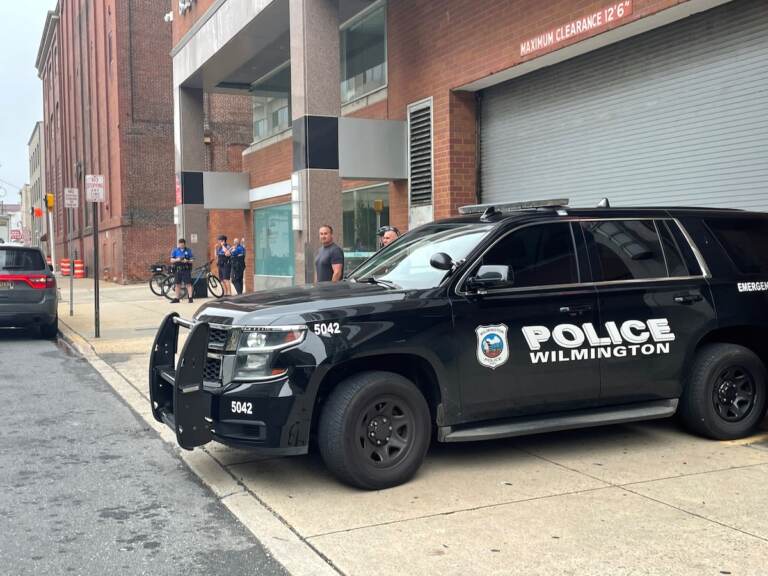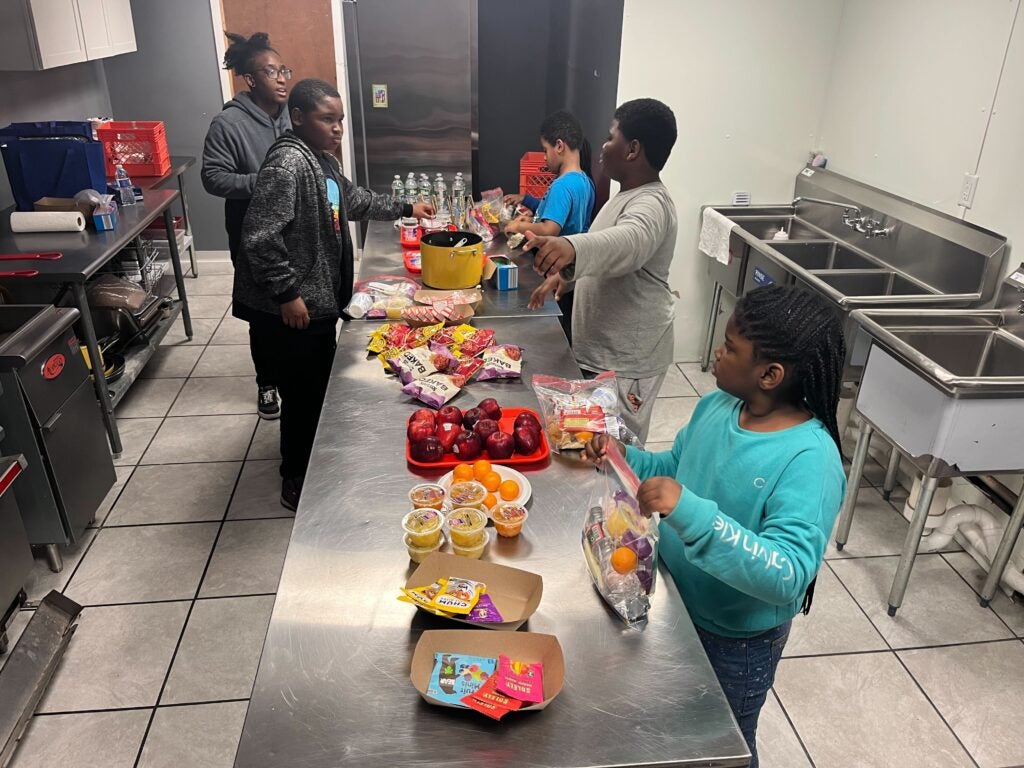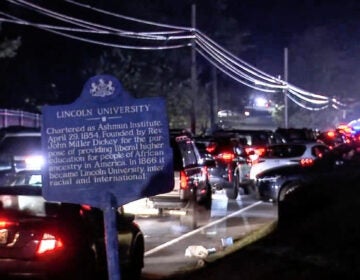New study: Young Black men say they need a gun for survival in Wilmington
A recent study found young Black men in Wilmington feel they need protection to stay alive. Work is being done to provide hope.
Listen 1:11
File photo: A Wilmington Police car. (Cris Barrish/WHYY)
From Philly and the Pa. suburbs to South Jersey and Delaware, what would you like WHYY News to cover? Let us know!
A new study published in the Delaware Journal of Public Health offers a stark glimpse into the experiences and perceptions of young African American men living in communities often associated with violence.
The research, conducted by scholars from Texas Southern University, Delaware State University, Coppin State University, Jackson State University, and Thurgood Marshall College, interviewed 400 young men between the ages of 15 and 24 who either owned or recently owned a firearm. Of the total group, about 100 participants were from Wilmington, Del.; the others were from Baltimore; Jackson, Miss.; and Houston.
The study — titled “Understanding the Perception of Place and Its Impact on Community Violence” — revealed that many participants felt compelled to carry firearms for safety, often after witnessing or experiencing violence in their neighborhoods. In Wilmington, 86% of respondents described the city negatively, with 74% using only negative terms.
Their descriptions included words like “murder town,” “treacherous,” “crazy,” “chaotic,” and “a war zone.” A persistent sense of threat pervaded their understanding of the city around them.
Safety concerns drove most participants to arm themselves.
According to the study, young men often encountered firearms at an early age — sometimes as young as 10 — and many had family members or close friends who introduced them to guns. The findings indicate that these decisions are not made lightly, nor in isolation. Social media pressures, limited economic opportunities, limited role models, and easy access to firearms shaped a landscape where carrying a gun seemed logical, even necessary, to the young men for personal protection.
Nurturing hope among young people
These research findings resonate with ongoing efforts at One Village Alliance, a Wilmington nonprofit seeking to nurture young people in a city often misunderstood by outsiders. One evening at the organization’s location on West 31st and Market streets, children gathered in a small kitchen to fill plastic bags with healthy snacks. The exercise, though seemingly simple, has a clear purpose: to instill good nutritional habits and provide a sense of stability. The community around them is sometimes referred to as a food desert, making nutritious food scarce.
By taking part in such activities, the children learn new skills and build confidence. “Can I get this one?” one child asked, eager to take part. Here, learning about healthy eating serves as an introduction to broader life skills that can help counter the environmental factors the study highlights.
The nonprofit’s after-school enrichment programs aim to reinforce positive experiences and set children on a path toward excellence through education, mentorship, and personal development. It offers a safe space and an alternative to the streets. This approach is informed by staff members who know the stakes all too well.
Vice President of Operations Armani Coleman grew up on Wilmington’s north side. He remembers losing friends to gun violence when he was still a child. “I’ve had friends that were murdered moments after we got off the school bus at the age of 11 and 12 years old,” he told WHYY News.
Coleman’s personal history underscores why it is critical to provide tangible alternatives for local youth. Now, through One Village Alliance, he is helping to create safe havens and open pathways to personal growth, precisely the kind of support the study suggests are lacking.

While acknowledging that these young men’s perceptions are valid and grounded in reality, Temple University’s Director for the Center for Anti-Racism, Timothy Welbeck, said he believes they also demonstrate a need for comprehensive intervention. “It does read as bleak,” Welbeck said of the study. “There is much work to be done … to help to not only mitigate these factors, but to bring hope.”
The study’s co-author, Delaware State University researcher Dorothy Dillard, Ph.D., noted in an email to WHYY that easy gun access and limited legitimate job opportunities both play roles. Participants described working mostly part-time jobs, often in fast food or retail. Few legal pathways to acquire firearms existed in their immediate environments, yet illegal options were readily available. The cycle of limited resources, pervasive fear, and easy access to weapons drives what Dillard and her colleagues identified as a public health concern.
Programs like those at One Village Alliance reveal that even in communities commonly perceived as violent or chaotic, important groundwork is being laid. Director Chandra Pitts criticized what she saw as a one-sided narrative, pointing out that the study does not fully acknowledge local initiatives aimed at strengthening neighborhoods.
“It’s egregiously biased against our children,” Pitts told WHYY News, noting that systemic inequities have forced many young people into survival mode. Pitts argued that local and state institutions must address the root causes of inequality if they hope to change these perceptions and outcomes. “We’re in a government system that’s investing greatly in the health, safety, and wellness of parts of the city … and turning their back on entire communities,” she said.
Some experts believe changing perceptions about gun carrying can help. Garen Wintemute, an emergency medicine physician and director of the California Firearm Violence Research Center at UC Davis, suggested that if more young people recognized that not everyone is armed, they might be less inclined to carry. “Maybe they can walk away from it,” he said, “particularly if the people around them are walking away from it.”
The study—funded by the National Collaborative on Gun Violence Research—underscores the complexity of community violence. While it documents urgent challenges, organizations like One Village Alliance are working to shift the narrative, helping young people envision a future where survival does not depend on carrying a weapon.

Get daily updates from WHYY News!
WHYY is your source for fact-based, in-depth journalism and information. As a nonprofit organization, we rely on financial support from readers like you. Please give today.




